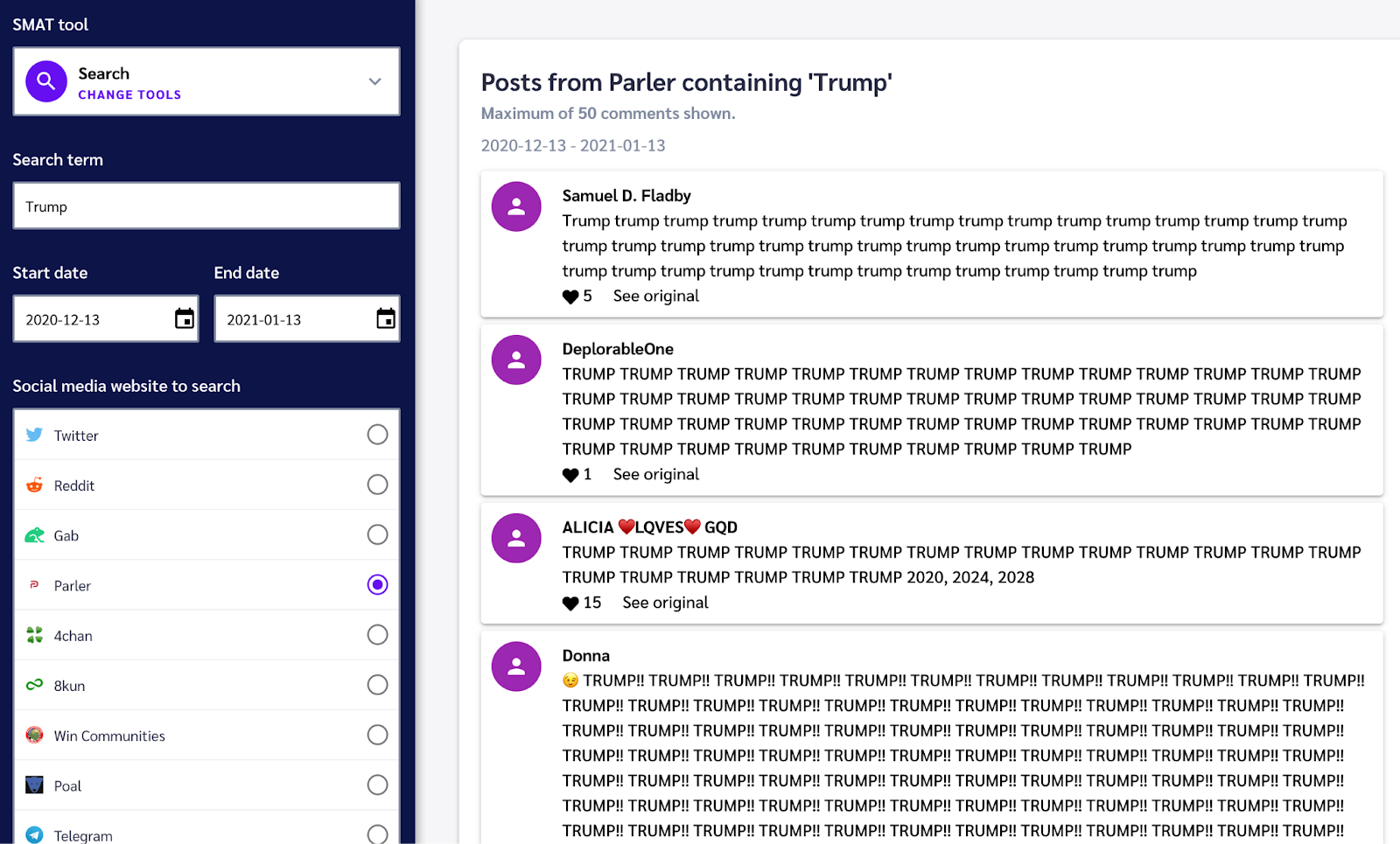New Feature: Read Full Posts with New Search Tool
Open Measures has released our new Search Tool, which allows users to read full posts from our dataset in a convenient interface
After multiple requests (from journalists particularly) about a desire to see raw posts themselves without using our API, we decided to push for the Search tool. It’s simple to use: Just select a search term, date range, and platform, and let the tool do its magic!

As an OSINT researcher, the Search tool is a one-stop shop for searching across various alt-platforms for a given term’s context. This can be useful both for finding new leads and for following up on existing hunches. As an added bonus, Open Measures’ Search feature is more reliable than the native search tools on many alt-platforms.
For now, we are only showing the first 50 results in the search (to prevent system abuse), though these results still give a great sense of the conversations happening about specific terms on any given platform, offering researchers an opportunity to dig more deeply into our data. We are working to add download capability as well.
The original posts are linked beneath the results, even if they’ve since been deleted. If they have been deleted, double-check that the link can’t also be found on archive.org.
You may notice a new consent checkbox as well for the Search tool – we’ve added this as many of the sites researchers may look into may have offensive or disturbing content, and the comments are unfiltered. As a note to researchers: Please take care when reviewing content through the Search tool!
What’s Next
We have many exciting upcoming development cycles to follow – for example, our team is working on adding boolean operators capabilities to all of our tools (though these are already available through our API). More plainly, these tools will allow front-end users to make much more complex kinds of queries (such as looking for mentions of “Trump” and “fraud” from specific accounts).
We are also hoping to grant access to our back-end analysis dashboard for advanced Open Measures usage across the entirety of our public (and non-public) datasets soon. More to come, so stay tuned!
Identify online harms with the Open Measures platform.
Organizations use Open Measures every day to track trends related to networks of influence, coordinated harassment campaigns, and state- backed info ops. Click here to book a demo.

